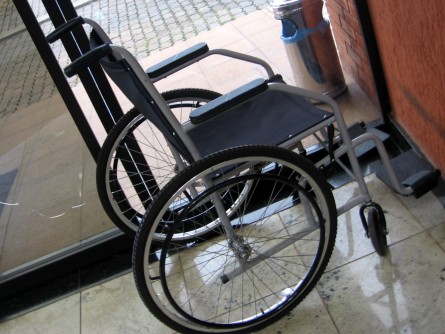I’m worried that the president of Barnard may have her official Sisterhood membership revoked. She’s written a piece for the Chronicle of Higher Education called “Shedding the Superwoman Myth” (which is excerpted from her new book). But Debora L. Spar has gone much further than question the idea that women can have it all. She’s questioned some very basic ideas underlying feminist ideology.
Most importantly she has decided that “biology matters.” She writes: “Women are not in any way physically inferior to men, but they are distinctly and physically different. They have wombs and breasts and ovaries, physiological attributes that—for better or for worse—tend to affect the course of their lives.”
Now I realize this is not exactly news to most thinking Americans, but the idea that “gender is a social construct” has gained a lot of traction in the academy over the past few decades.
Spar suggests that “a new look at feminism would suggest integrating biology more explicitly, and acknowledging the not-so-subtle ways in which women's physiology can shape their destinies. Two areas are paramount: sexuality and reproduction. Although, of course, both women and men are involved in both sex and reproduction, the effects fall differently on women.”
I know. Not exactly a “stop the presses” moment for most of us. But Spar in the course of the next few paragraphs manages to undermine decades of public policies pushed by feminist leaders. First she says that workplaces needn’t be so puritanical about relationships among employees. Which is to say that not every flirtation needs to be turned into a sexual harassment claim.
And then she says that no government program is ever going to alleviate the tension that working women feel when they have children at home. “Yes, companies can and should strive to create generous maternity leaves and family-friendly workplaces. Yes, governments should aim to provide more accessible and affordable child care. But at the end of the day, women who juggle children and jobs will still face a serious set of tensions that simply don't confront either men (except in very rare cases) or women who remain childless.” When it comes to bearing and raising children, women and men are not interchangeable.
So how did Ms. Spar arrive at these startling conclusions? What is it that could get the president of Barnard to rethink some of the central tenets of feminist ideology? She looked around and realized that women were not happy. When she realized that in addition to all of that juggling of work and family that women could not escape because of biology, they were also bearing the burden of having to set a political example, to somehow speak for and represent women everywhere, it was simply too much.
And so Ms. Spar finally decided that enough battles had been won that it would be okay for women to simply go back to being individual human beings, making choices for themselves:
Somewhere, though, the joy fell out of that equation, along with the satisfaction that true choice should bring. If women want to work in high-powered jobs, they should. If they want to work part time, or from home, or not at all if they can afford it, that's perfectly all right, too. If they don't want to be neurosurgeons or look like Barbie or hook up every weekend because it doesn't give them pleasure, they should consciously and explicitly hold back, choosing not to indulge other people's preferences. If they like to bake elaborate organic cupcakes, they should. And if they don't, they should send Ring Dings to the bake sale and try not to feel guilty.
To which I can only add, Hallelujah.






